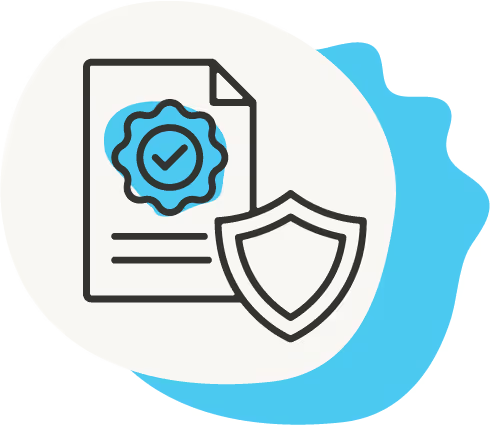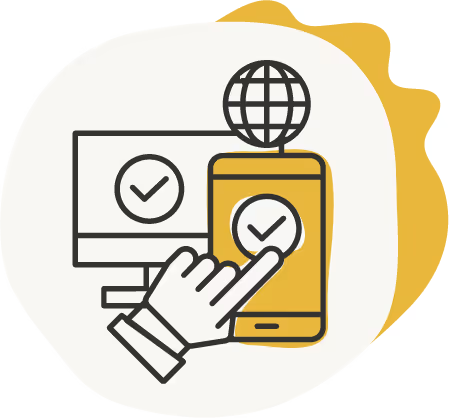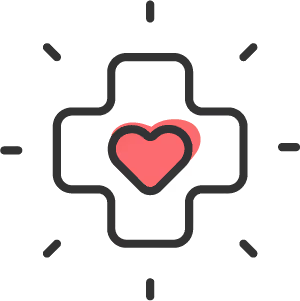Get better with mental health treatment you can trust
Our online treatment programs empower you with
the tools you need to take charge of your
recovery— anywhere, anytime


In partnership with

.avif)

What would you like help with?
Find a relevant treatment program

Not sure where to start?
Take a short wellbeing test to find out which treatment program is suitable for you


Mental health
treatment that works

Proven effectiveness
Based on Cognitive Behavioural Therapy (CBT), clinically proven to reduce symptoms and improve wellbeing.

Skills for lasting change
Engaging story-based modules, targeted exercises, and action plans to help you apply your new skills in daily life.

Accessible anywhere
Complete three to eight modules over 90 days at your own pace, accessible online anywhere in the world.
Clinically proven to help you feel better

1 in 2
Australians will struggle with mental health at some point in their life

80%
of people who use THIS WAY UP report a significant improvement in how they feel

50%
of people who use THIS WAY UP say they are no longer troubled by their symptoms


Choose a treatment program or take our assessment to find out which one is suitable for you.


Enrol now to get immediate access or talk to your clinician to get a referral.


Complete the first module at your own pace, accessible online.


There is a five day break between each module, giving you time to put your new skills into practice.


Trusted, research backed programs
THIS WAY UP is led by psychiatrist Dr. Mike Millard and staffed by clinical psychologists and researchers.
We are based at the Clinical Research Unit for Anxiety and Depression (CRUfAD), a partnership between St Vincent's Hospital and the University of New South Wales.
What is THIS WAY UP?
THIS WAY UP is an online platform offering evidence-based, self-paced mental health programs designed to help you learn effective ways to manage various mental health conditions. It's a joint initiative of St Vincent's Hospital and the University of New South Wales, providing online Cognitive Behavioural Therapy (iCBT).
The programs consist of illustrated modules that teach evidence-based CBT strategies through stories of recovering individuals, alongside practical workbooks and activities. They're designed to mimic the education, skills and strategies you would learn from a mental health professional in face-to-face therapy.
Which mental health conditions do the programs address?
The programs focus on various conditions including depression, anxiety disorders (general, social anxiety, health anxiety, OCD, panic disorder), post-traumatic stress, insomnia, perinatal mental health, and chronic pain. They're designed for non-urgent mental health issues and offer practical skills for managing symptoms in a self-paced manner.
The programs consist of illustrated modules that teach evidence-based CBT strategies through stories of recovering individuals, alongside practical workbooks and activities. They're designed to mimic the education, skills and strategies you would learn from a mental health professional in face-to-face therapy.
How much do the programs cost?
Some programs are immediately free to access, while others cost $59 AUD. However, all programs can be accessed for free if prescribed by your healthcare professional (GP, psychologist, or other mental health professional).
How long do the programs take to complete?
Programs are self-paced and typically designed to be completed within 4 to 12 weeks. Most have a recommended pace of completing one module every 1-2 weeks.
How do I choose the right program?
You can choose a program based on your specific mental health needs or take our anonymous online test to determine which program might be most suitable for your situation. The test assesses your levels of stress, anxiety, or depression and suggests appropriate programs.
Do I need a referral to use THIS WAY UP?
No, you don't need a referral to access the programs. You can enrol directly in the "self-help" option. However, getting a prescription from your healthcare provider allows you to access paid programs for free and receive their support throughout the process.
What support will I receive while using the programs?
The level of support depends on how you access the program. With the self-help option, there's no clinical support available as the program is completely automated, though technical assistance is provided. If your clinician prescribes the program, they can monitor your progress and wellbeing scores.
Are the programs effective?
Research shows that 80% of people who complete all modules are no longer troubled by their symptoms. The programs have been evaluated in randomized controlled trials and real-world studies. Read more about the research behind the programs here.
By submitting this form I agree to the THIS WAY UP Terms of Use and Privacy Policy.














